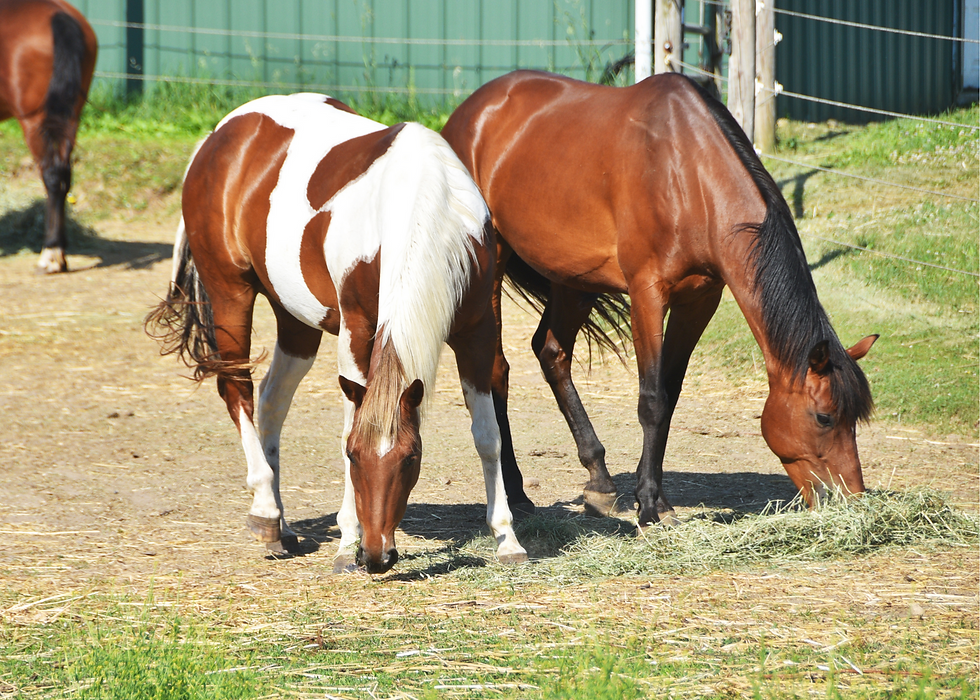Creating a balanced horse diet is essential for maintaining the health and well-being of your equine companion. Just like humans, horses require a well-rounded diet that provides them with all the necessary nutrients. The importance of a balanced horse diet cannot be overstated, as it influences everything from performance and energy levels to coat quality and overall health. An optimal diet ensures that your horse remains active, happy, and healthy.

Understanding the Basics of a Balanced Horse Diet
A balanced horse diet typically includes a mix of carbohydrates, proteins, fats, vitamins, minerals, and water. Let’s break down the fundamental components:
Carbohydrates
Carbohydrates serve as the primary energy source. Grains such as oats and corn are rich in carbohydrates, but it’s crucial to feed them in moderation to avoid obesity or digestive issues.
Proteins
Proteins are vital for muscle development and repair. Good sources of protein include alfalfa and soybean meal.
Fats
Fats provide energy and aid in nutrient absorption. Oils such as soybean oil and flaxseed oil are common additions to a balanced horse diet.
Vitamins and Minerals
Vitamins and minerals are essential for maintaining health. Supplements and high-quality hay often provide these crucial nutrients.
Water
Water is perhaps the most crucial component. Horses should always have access to clean, fresh water.
Reasons for a Balanced Horse Diet
There are numerous reasons to prioritize a balanced horse diet. The right nutrients can enhance growth, boost immunity, improve coat and hoof health, and optimize reproductive capabilities.
Growth and Development
Young horses need a diet rich in necessary nutrients to ensure proper growth and bone development.
Maintenance of Health
An adequate diet can prevent diseases and enable faster recovery from illness or injury.
Performance and Endurance
A balanced diet enhances performance, providing energy and endurance for horses in training and competition. Visit this resource to learn more about the dietary influence on performance.
Creating a Customized Horse Feeding Plan
Creating a customized feeding plan involves understanding your horse’s specific needs based on age, activity level, and any existing health conditions. Ensuring a proper schedule and quality feed is crucial.
Feeding Schedule
Using a structured schedule ensures your horse receives nutrients consistently throughout the day.
Quality of Hay
The quality of hay plays a critical role. Conducting a hay quality test will guarantee it meets nutritional standards.
Important Considerations When Planning a Diet
The type of feed, portion sizes, and environmental factors all impact your horse’s diet. Tailor these to meet your horse’s particular needs.
Choosing the Right Feed
Different feeds offer different benefits. Consulting with a nutritionist for tailored advice can be invaluable.
Portion Control
Pay attention to portion sizes to prevent overfeeding or underfeeding.
Common Mistakes and How to Avoid Them
Mistakes often occur when horse owners attempt to alter the diet without proper knowledge. Avoid these pitfalls by consulting experts or reliable resources.
For example, feeding too many grains can lead to digestive issues. Always ensure you maintain a balanced intake of carbohydrates, proteins, and fats.

Faq
How often should I feed my horse?
Depending on their activity level and dietary needs, horses may require feeding two or three times a day. Consider a structured feeding schedule.
What supplements should I consider?
Mineral and vitamin supplements can fill nutritional gaps. Read more about available supplements.
Can I change my horse’s diet suddenly?
Sudden changes can be harmful. Gradual shifts over a week or two are recommended for the horse to adjust properly.
This article contains affiliate links. We may earn a commission at no extra cost to you.
